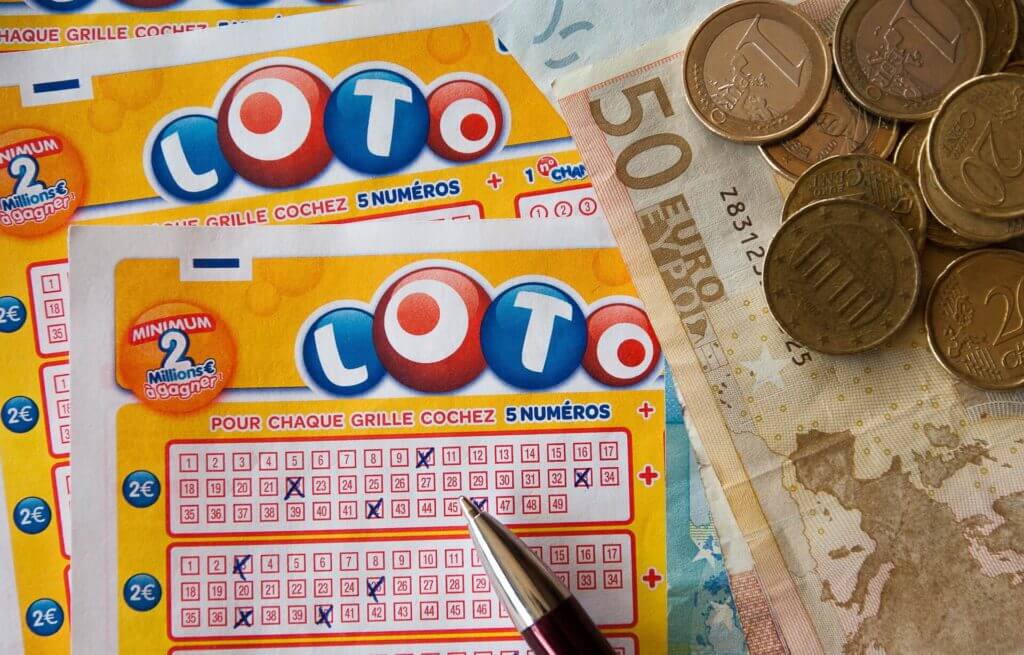What to Know About Taxes on Prize Winnings
In this article, we will examine the tax implications of winning a prize, including taxes on game show winnings, taxes on professional awards, taxes on personal awards, taxes on lottery winnings, taxes on reality competition show winnings (Big Brother, MasterChef, Survivor), taxes on sports betting (Toto), and taxes on various types of raffles. The taxation of prizes and lotteries is a controversial issue in Israeli tax law. Until mid-2003, based on the source theory, winnings from gambling, prizes, and lotteries were considered ‘gifts from heaven’ and were exempt from taxes in Israel. As part of the economic policy to expand the tax base in Israel, Amendment 134 was added to the ordinance. From Amendment 134 to the Income Tax Ordinance [effective 1.7.2003], Section 2A was introduced, stating: “Income or profit… whose source is from gambling, lotteries, or prize-winning activities.” The wording of this section indicates that it applies only to income originating from one of the methods mentioned in the section.
An important question arises: When is a prize considered income originating from a prize-bearing activity, and when does the source of the win come from another income source, such as a business, rather than a prize-bearing activity?
In other words, does the win depend on the personal circumstances of the winner, or is all that is required for the winner to join an existing event, thereby “purchasing” their chances of winning?
The answer to this question will determine the classification of the prize and will affect the taxation applied to it. The classification of the prize is very important and will be determined based on the factor that influences the win – the very factor that essentially grants the winner the right to the prize.
Prizes can be classified under three categories:
- When the win results from a personal advantage of the winner, the received amount is typically classified as income from a business or professional activity. In the case where a prize is classified as a business receipt, the tax imposed will be according to the regular tax brackets (marginal tax rate).
- If the receipt is due to a random win in a lottery, without the winner having a special influence on their winning, the received amount will be classified as a prize under Section 2A of the ordinance. In this case, the applicable tax rate will be 35%.
- A prize received in personal context and/or a prize received from another source not covered under Section 2A mentioned above will not be considered taxable income, and therefore, no tax will be imposed on it. Most of the opinions we provide examine whether it is indeed possible to recognize the receipt as a prize received in a personal context.
Exemption from Tax on Winning a Prize or Lottery:
As of 2024, the exemption from tax on prizes is set at 33,840 ILS. Up to twice this amount, a reduced exemption will be provided according to the calculation established in the Income Tax Ordinance (Determining the Amount for Earnings or Profits from Gambling, Lotteries, or Prize-Bearing Activities), 2003. The mechanism is a “rolling exemption”; for instance, if I won a sum of 40,000 ILS, the winnings exceed the exemption limit by 6,160 ILS (40,000 – 33,840), thus the exemption would decrease by the surplus amount to 27,680 ILS (33,840 – 6,160). Consequently, I will pay 35% tax on a sum of 12,320 ILS, representing the difference between the winning amount and the “adjusted” exemption.
Receipts from Prize-Bearing Activities – Classifying the Source of Income for Tax Purposes:
As mentioned, the main conflict concerns the criteria underlying eligibility for a prize and the extent of the winner’s active involvement or lack thereof in the prize-bearing activity. This contrasts with receipts from business activities based on knowledge and skills, where such receipts would be classified as income from professional services or business income subject to tax under Section 2(1) of the ordinance, with tax imposed according to tax rates.
In this regard, the court’s stance is known (the verdict in the case of Baruch Meshulam vs. the Tax Officer TA 1). Among the criteria developed in jurisprudence for distinguishing between a neutral prize and a prize characterized as business activity are the competitor’s interest in participating in the activity as a means to promote their business and showcase their expertise, and the competitor’s business or research work for participation in the competition. The common denominator among these criteria is the personal advantage and the business interest of the participant in the competition and the absence of neutrality.
Accordingly, over the years, the Tax Authority has published implementation instructions and income tax circulars to clarify its position on these matters.
Income Tax Circular No. 21/90 “Scholarships, Grants, and Prizes as Income” adopts the court’s stance regarding Meshulam, stating that although prizes are considered gifts from heaven, the prize Meshulam won was based on his regular occupation.
Following this, the Tax Authority published Implementation Instruction 19/90 – “Prizes for Agents and Merchants as Income and the Duty of Withholding at Source.” Additionally, the Tax Authority also published Income Tax Circular No. 17/2004 – Taxation of Lotteries, Betting, and Prizes. This circular helped clarify the correct interpretation of Section 2A of the ordinance according to the Tax Authority’s stance. This circular explained the personal and territorial taxation principles of the section and clarified profits not seen as prizes. Accordingly, based on these circulars, if the winner has a personal advantage of skills, proficiency, knowledge, and expertise as a significant component required for winning the prize, the tendency is to see the prize as business income. If the winner does not require a personal advantage to win the prize, the tendency will be to see the prize as a receipt from a prize-bearing activity subject to Section 2A of the ordinance. When the prize is received as a “gift from heaven,” it will not be considered taxable income, and no tax will be imposed on it.
Misclassifying the prize could cost the winner 35% of the prize amount they receive – which they would need to pay as tax. This contrasts with classifications that result in lower tax rates or, in some cases, complete exemption from tax/partial exemption, and sometimes even determination as a receipt not subject to tax. Therefore, the classification of the prize is critical.
For example, winning a prize in a reality competition is subject to full taxation. The reason is that when a person enters a competition, they do so with the intention of winning a prize.
Our office specializes, among other things, in providing professional opinions on the taxation of prizes. You can read an article from Mako about tax on winnings – click here.
For the sake of demonstration – taxation of common prizes in Israel:
Minimum Taxation | Maximum Taxation Under Business Classification | Maximum Award Taxation Amount Under Award Classification | Amount | Category & Classification | Award Name |
0 | 23,500 NIS | 13,650 NIS | 50,000 NIS | Literature | Bernstein Prize – Original hebrew novel |
0 | 117,500 NIS | 87,500 NIS | 250,000 NIS | singing, cooking, baking and extreme sports | Reality competitions prize |
0 | 470,000 NIS | 350,000 NIS | 1,000,000 NIS | Singing | Winning the Eurovision Song Contest |
0 | 235,000 NIS | 175,000 NIS | 500,000 NIS | Sports | Olympic competitions abroad |
0 | 84,600 NIS | 63,000 NIS | 180,000 NIS | Literature | Sapir Prize |
0 | 35,250 NIS | 26,250 NIS | 75,000 NIS | Academic and scientific research | Israel Prize |
0 | 23,500 NIS | ₪13,650 NIS | 50,000 NIS | Hebrew Literature | Levy Eshkol Prize |
0 | Academy, Science and Art | 35,000$ | $100,000 | $47,000 [about 164,500 NIS according to the dollar exchange rate of 3.5] | Wolf Academy Prize |
The main prizes in which there is a dispute regarding taxation are:
Israel Award; Wolf Foundation Award; Dan David Award; A.S.C (art, science, culture) Award; Israeli Sports Award; Lifetime Achievement Award; World Artistic Gymnastics Championship; Maccabiah; Grand Slam (Judo); Grand Slam (Tennis); Grand Prix; the World Judo Championship; the Basketball World Cup; the World Swimming Championship; the Women’s Basketball World Championship; the World Poker Championship; the World Acrobatics Championship; the European Swimming Championship; the European Chess Championship; the Chess World Cup; the Bialik Award; the Tzipora and Ze’ev Ben-Haim Hebrew Language Academy Award; Akum Award; Bhatt Award; Israel Museum of Illustration Prize for children’s book named after Ben-Yitzhak; Brenner Prize; Bernstein Prize; Bernstein Prize – Original Hebrew Novel; Leah Goldberg Prize; Geffen Prize; Tschernihovsky Prize; Yitzhak Sade Prize for military literature; The Jerusalem Prize; Leidesdorff Prize for the Arts; the Newman Prize for literature; the President’s Wife Prize for Hebrew Poetry; the Sapir Prize; the Agnon Prize for the Art of Prose; the Einat Prize; the Aminach Prize; the Akevyahu Prize for poetry; the Chechik Prize for national security studies; the “Haaretz” Short Story Contest; Ministry of Education and Culture Award; Yehuda Amichai Award; Creation Award for Hebrew Writers; Minister of Culture and Sports Awards in the field of Hebrew Literature Creation; Deborah Omer Award; Israel Award in the field of Hebrew Minstrel; Rechter Award; Young Artist Award; Encouraging Creativity Award for plastic Art; Lifetime Achievement Award in the field of The plastic arts; the film art Award; Award for creators and performers in the field of concert dance.







